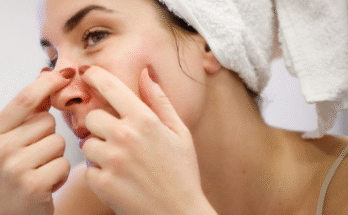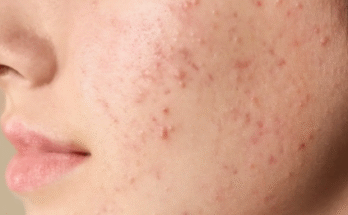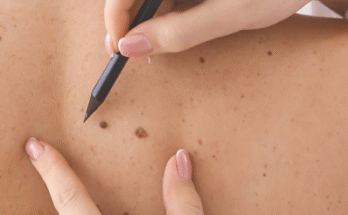Acne is something many men face, whether during teenage years or well into adulthood. It can be frustrating to wake up and see new blemishes, bumps, or redness on your skin, especially when you’re doing your best to take care of yourself. The good news is that acne is both common and treatable. With a bit of understanding, the right routine, and consistent care, clearer skin is within reach.
Understanding Why Acne Happens
Acne develops when hair follicles become clogged with oil, dead skin cells, and bacteria. While this can happen to anyone, men often experience more severe breakouts due to higher levels of testosterone. This hormone stimulates oil production, which can lead to clogged pores and inflammation.
There are different types of acne, ranging from small whiteheads and blackheads to larger pimples or cystic spots. Each type may need slightly different care, but the foundation of treatment remains the same—keeping your skin clean, balanced, and protected.
It’s important to remember that acne isn’t a sign of poor hygiene or neglect. It’s a skin condition influenced by factors like hormones, genetics, diet, and lifestyle. Understanding what triggers your breakouts is the first step toward managing them effectively.
Building a Simple, Consistent Skincare Routine
One of the most effective ways to combat acne is to create a skincare routine that works for your skin type. You don’t need an expensive lineup of products or an elaborate routine. Consistency is key.
Start with a gentle cleanser that removes excess oil and dirt without over-drying your skin. Many men make the mistake of using harsh soaps or scrubbing aggressively, thinking it will clean their skin better. In reality, that can cause irritation and worsen acne. Look for a mild cleanser designed for oily or acne-prone skin.
After cleansing, use a light moisturizer. Yes, even oily skin needs hydration. When your skin becomes too dry, it can actually produce more oil to compensate, which can lead to more breakouts. Choose an oil-free or “non-comedogenic” moisturizer that won’t clog your pores.
Finally, don’t forget sunscreen. Daily protection against UV rays helps your skin heal faster and prevents dark marks or uneven tone left behind by acne. A broad-spectrum SPF 30 or higher that’s lightweight and non-greasy is ideal.
Choosing the Right Products
With so many options on the market, finding the right skincare products can feel overwhelming. The best approach is to focus on a few proven ingredients known to help reduce acne.
Salicylic acid helps clear out pores and prevent blockages. Benzoyl peroxide targets acne-causing bacteria and reduces inflammation. Niacinamide can calm irritation and strengthen your skin’s natural barrier. If you’re new to skincare, start slowly—use one active ingredient at a time to see how your skin reacts before combining products.
When in doubt, consult a dermatologist. A professional can guide you toward treatments that fit your skin type and severity of acne, whether it’s topical creams, oral medication, or lifestyle adjustments.
Shaving Without Causing Breakouts
Shaving can be tricky when you have acne-prone skin. Using the wrong technique or products can irritate your skin and lead to razor bumps or flare-ups. To avoid this, soften your facial hair with warm water before shaving. Use a clean, sharp razor, and replace blades regularly. Apply a soothing shaving gel or cream made for sensitive skin to reduce friction.
After shaving, rinse with cool water and apply a gentle moisturizer. Avoid aftershaves that contain alcohol—they can sting and dry out your skin, making acne worse.
Diet, Exercise, and Lifestyle Choices
Skincare doesn’t stop at the bathroom sink. What you eat, how you move, and how you manage stress all affect your skin’s appearance.
A diet rich in fruits, vegetables, lean proteins, and whole grains supports overall skin health. Some men notice breakouts after eating a lot of sugary or processed foods. While the connection between diet and acne isn’t the same for everyone, reducing high-glycemic foods and dairy may help. Drinking enough water also keeps your skin hydrated and helps flush out impurities.
Exercise is another key factor. Physical activity boosts circulation, which helps nourish your skin. Just remember to cleanse your face after working out to remove sweat and bacteria that could clog pores.
Sleep and stress management matter too. Lack of sleep and high stress levels can trigger hormonal changes that worsen acne. Aim for seven to eight hours of sleep per night, and find healthy ways to unwind—whether through exercise, hobbies, or spending time outdoors.
When to Seek Professional Help
If you’ve tried multiple approaches and your acne still isn’t improving, it may be time to see a dermatologist. Persistent or painful acne can sometimes indicate an underlying issue that needs medical treatment. Dermatologists can recommend prescription options or in-office treatments that are safe and effective.
It’s important not to pick, pop, or squeeze pimples. While it may be tempting, this can push bacteria deeper into the skin and lead to scarring. Let treatments and time do their work instead.
The Role of Consistency and Patience
Perhaps the hardest part of fighting acne is waiting to see results. Skin takes time to heal and renew itself. Most treatments take at least four to eight weeks to show improvement, so don’t get discouraged if you don’t see immediate changes. The key is to stick with your routine and avoid jumping between products too quickly.
Consistency builds results. Washing your face twice daily, moisturizing, and applying treatment products as directed can gradually transform your skin’s texture and clarity.
Building Confidence Beyond Skin
While acne can affect how you feel about your appearance, it’s worth remembering that everyone experiences skin challenges at some point. Clear skin can boost confidence, but confidence also grows from taking care of yourself, building healthy habits, and knowing you’re doing your best.
Small changes—like drinking more water, switching to a better cleanser, or getting enough rest—add up over time. The goal isn’t perfection but progress. You’re not defined by a few blemishes or flare-ups.
The Takeaway
Acne may be stubborn, but it’s manageable with the right knowledge and habits. Focus on a simple, consistent skincare routine. Choose gentle, effective products that fit your skin type. Pay attention to how your lifestyle affects your skin, and don’t hesitate to get professional advice when needed.
Most importantly, be patient with yourself. Clearer skin takes time, but every step you take—no matter how small—moves you closer to that goal. With a little dedication and self-care, you can face each day with more confidence and a healthier, happier complexion.


